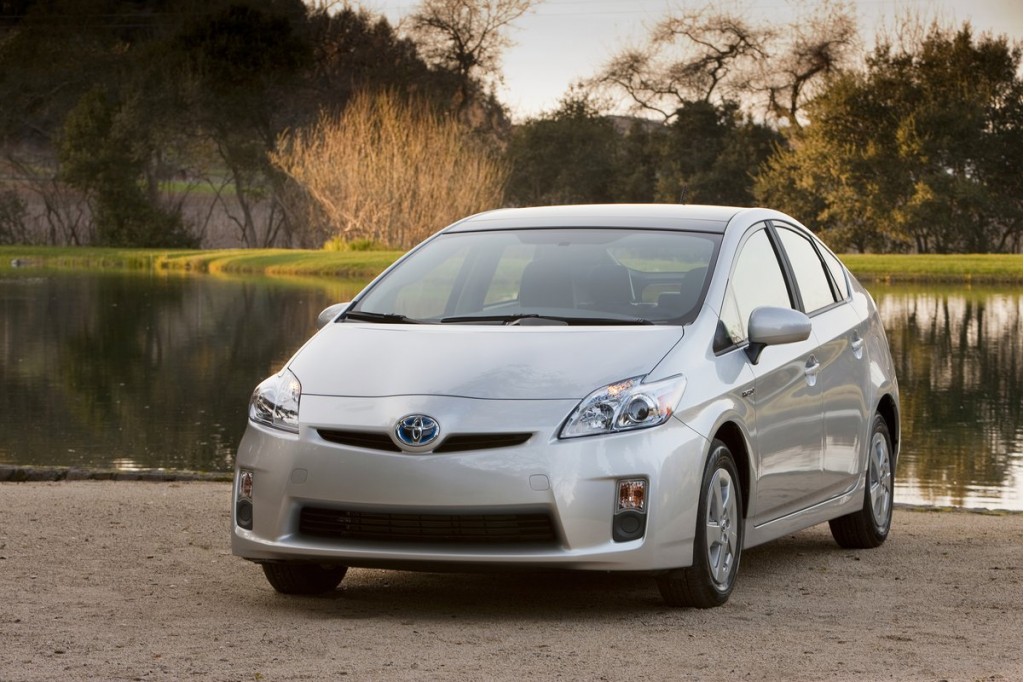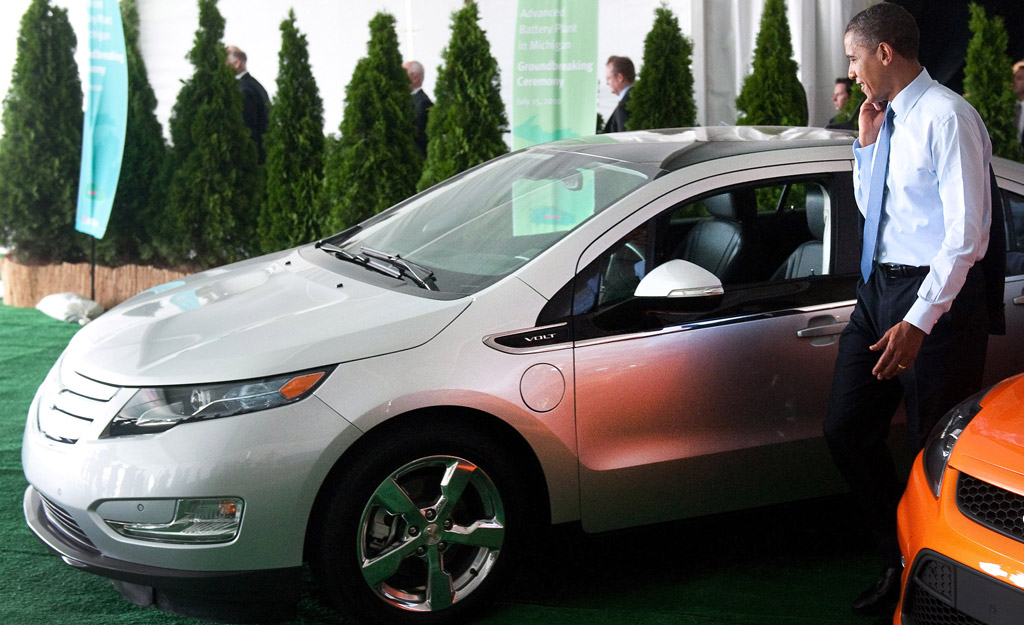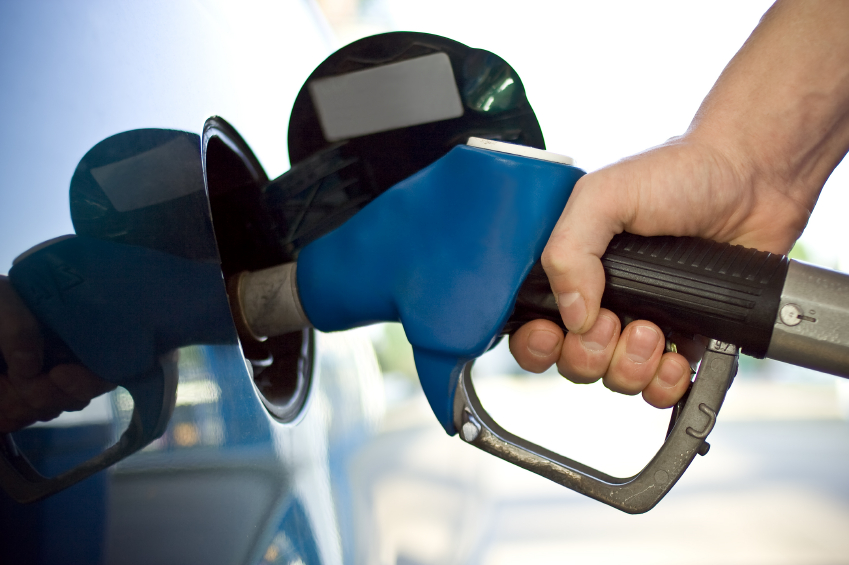The two Federal agencies that set gas mileage and emissions standards for future cars may propose rules that require corporate average fuel economy to reach 56 miles per gallon by 2025.
News reports out of Washington, D.C., indicate that the Obama Administration is urging the EPA and NHTSA to push for a 5-percent improvement each year between 2017 and 2025.
That translates to a 56.2-mpg fleet average in 2025.
Regulators have been analyzing annual increases from 2 to 7 percent; Detroit is said to have acknowledged it could meet a 3-percent increase.
34 mpg in 2016, 62 mpg by 2025?
Rules for cars built through 2016 were finalized two years ago. Weighted by sales, new-vehicle gas mileage will have to average 34.1 miles per gallon across the entire fleet by the 2016 model year.

2011 Toyota Prius
Adjustments in the formula to reflect real-world driving conditions would mean that produced vehicles with window-sticker ratings of about 50 mpg.
That's exactly the combined EPA rating of the 2011 Toyota Prius, the most fuel-efficient car sold in the U.S. today that doesn't plug in.
Or 37 mpg on the window sticker?
The 5-percent standard being considered, for 56.2 mpg in 2025, works out to average combined EPA ratings of about 37 mpg. That would apply to vehicles coming on the market 15 years hence, or two to three generations beyond what's on sale today.
Before the National Highway Traffic Safety Administration and the Environmental Protection Agency can formally release their proposal--which they hope to do during September--it must be reviewed by the Office of Management and Budget.
The final rules could be issued roughly a year from now.
Gloom and doom as usual

President Obama inspects the 2011 Chevrolet Volt
An analysis by the Detroit-linked Center for Automotive Research predicted dire consequences from a 2025 rule of 47 to 62 mpg.
But it has been contradicted in studies issued by several other groups.
California has the power
The elephant in the room is the California Air Resources Board, which has long had the legal authority to set its own standards for cars sold within the state.
Automakers desperately want a single national standard, to avoid having to adjust the vehicles they offer on a state-by-state basis. As BNet writer Jim Motavalli points out, this gives regulators the upper hand.

Fast Charging 2011 Nissan Leaf
Much debate will ensue over the loopholes: Will the EPA continue its plans to phase out CAFE bonuses for flex-fuel vehicles that can run on E85 ethanol, since virtually none of them ever do? How much credit will plug-in vehicles count for?
Smaller, better engines
Still, while Federal rule-making can be a mysterious process, the odds seem to indicate that car buyers 15 years hence will be offered vehicles with far higher gas mileage than those on sale today.
Most of that increase will come from smaller, vastly more efficient gasoline engines.

Gas pump
But gasoline engines will likely power a majority of the vehicles sold in 2025.
What will those vehicles cost? Most studies indicate they'll be pricier in real dollars than they are today--although the increases will be recouped in fuel savings over the lifetime of the car.
As always, though, it depends on what you think will happen to oil prices in the future. Because the price of oil is the one factor that no elected official, government agency, or global automaker can control.
[Detroit News, BNet, Sacramento Bee, Detroit News]
+++++++++++













